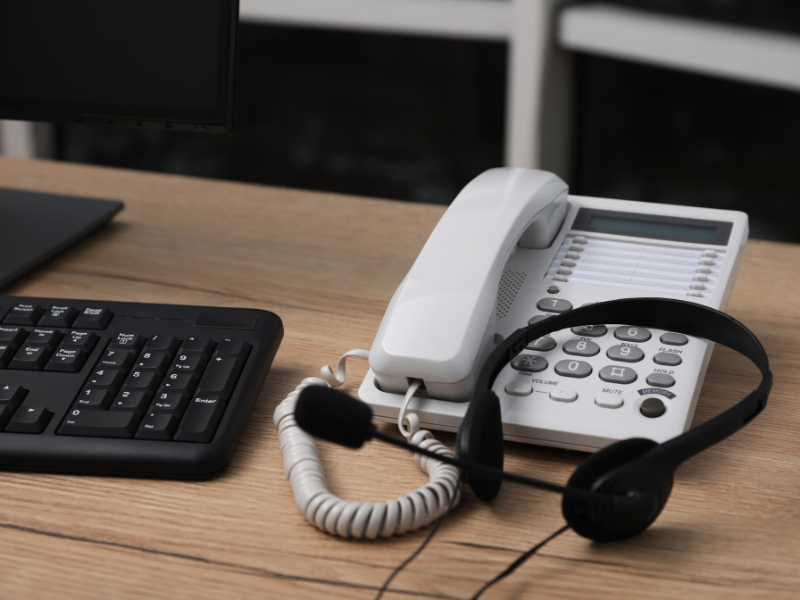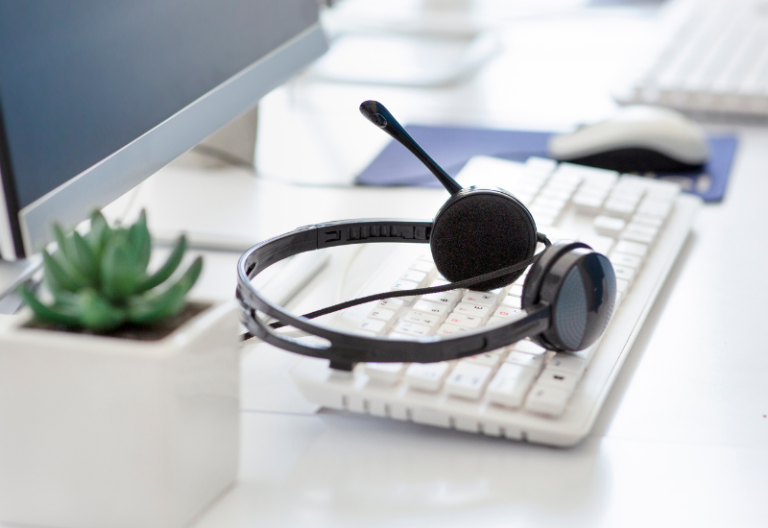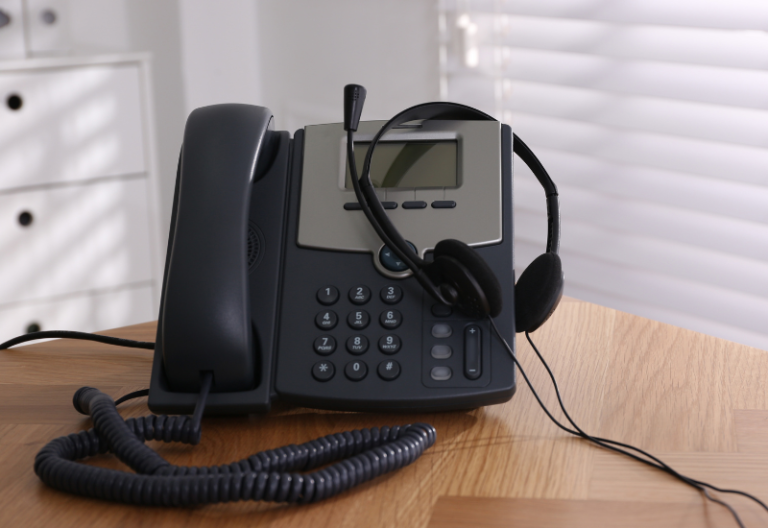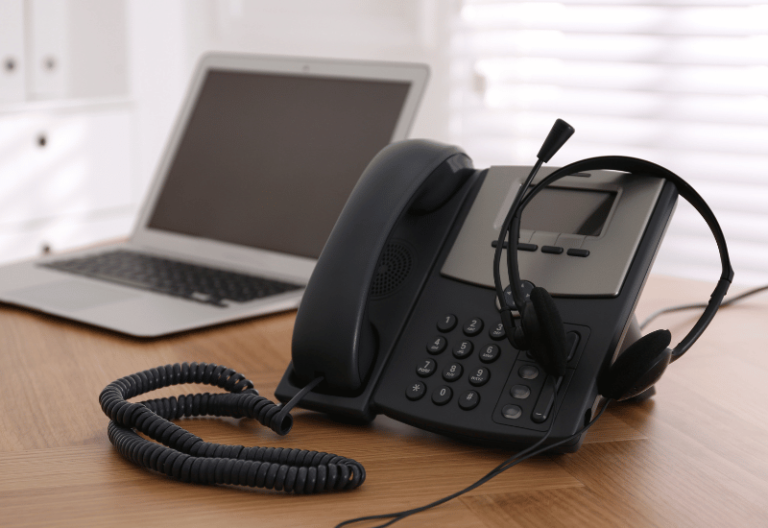How secure is VoIP? Businesses considering switching from traditional PBX should always consider security as a primary deciding factor. After all, you want both the convenience of streamlining communications and the ability to mitigate potential security risks, given how VoIP uses the Internet to transmit voice data.
This article explains the importance of ensuring VoIP security and the best practices your business can take to mitigate potential threats.
Table of Contents

Are VoIP Calls Secure? Why VoIP Security Matters
VoIP systems, like other communication methods, are prone to security threats. Regardless of how small or large your business is, serious breaches or attacks on your phone system can result in devastating consequences. The last thing you want is to make your VoIP system susceptible to threats such as malware and phishing.
Any breach of private or confidential calls could cost your business its reputation. Compromised VoIP systems may also warrant regulatory and compliance regulations.
Bolstering your VoIP security prevents attackers from exploiting your communication channels. You are also less likely to deal with the aftermath of attacks, such as paying hefty fines for compliance violations.
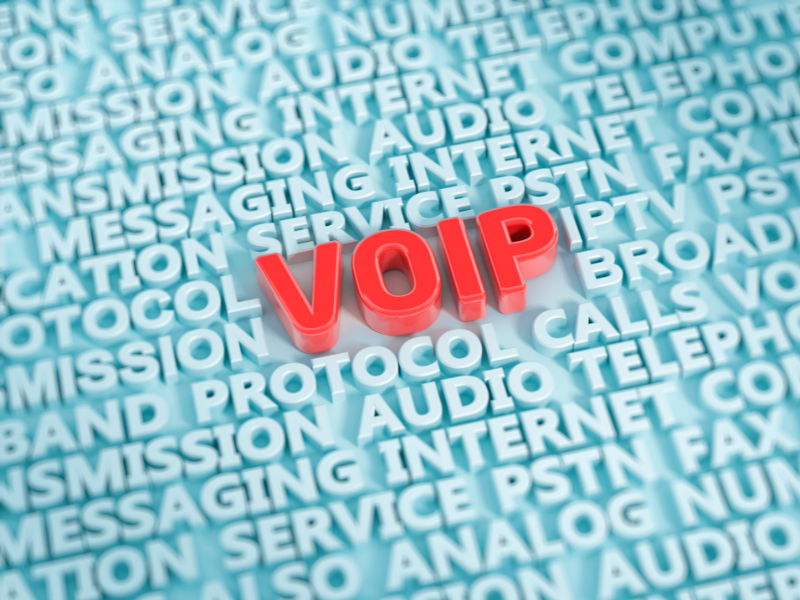
VoIP Security Best Practices
Here are some best practices your organization can implement to enhance security posture:
- Use powerful encryption and access controls: Implement strong encryption and unique passwords with multi-factor authentication (MFA) to prevent unauthorized users. Restrict users based on their roles and responsibilities.
- Install firewalls and intrusion detection systems: Detect possible malicious activities by deploying firewalls to filter voice traffic.
- Delete sensitive voicemail messages: As soon as you’ve listened to your voicemails, delete them to prevent data from being compromised.
- Track and log network activities: Have a detailed record of all VoIP system activities to monitor, detect, and promptly mitigate suspicious activities.
- Separate voice traffic from other data traffic: Isolating your VoIP traffic can help reduce the risk of eavesdropping, interception, and unauthorized access.
- Update your VoIP software: Make sure you’re using a secure VoIP phone and your VoIP software is updated with the latest security patches.
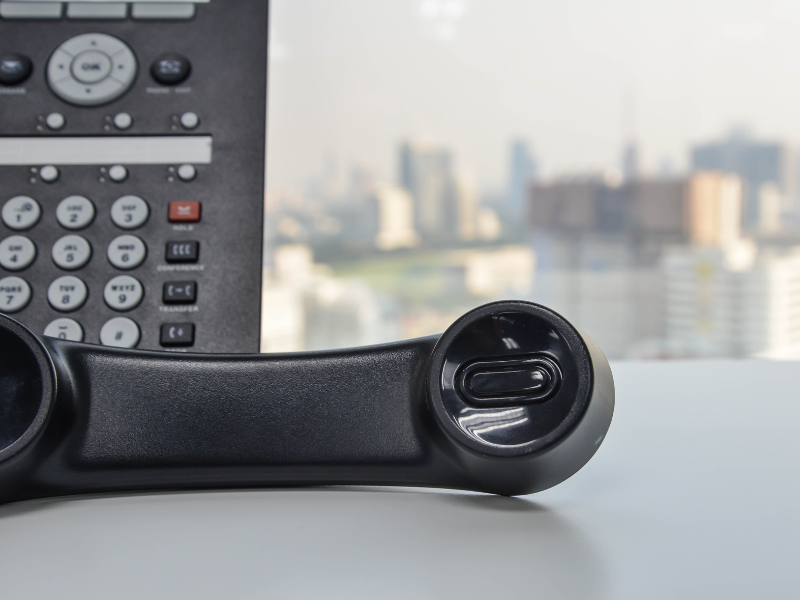
Common VoIP Security Threats
Identifying the most common security risks is crucial in securing your VoIP system. Once you become familiar with the potential VoIP security threats, you can create an action plan to identify vulnerabilities and stay ahead of possible threats.
Call tampering
Are VoIP phones secure and protected from call tampering? Not quite. Hackers can disrupt ongoing calls by intercepting your network. They will send a large volume of data or inject noise packets to tamper with your calls. Moreover, attackers can delay the transmission of data between callers, which explains why you’re sometimes getting choppy calls.
Besides lowering the call quality, call tampering can undermine the confidentiality and integrity of sensitive information transmitted during calls.
Caller ID spoofing
Unauthorized users can use false identities to impersonate valid VoIP callers and extract confidential information from their targets. Is VoIP secure? Yes. However, hackers can fool you into thinking it’s coming from a legitimate bank representative, tricking you into disclosing your bank and social security details.
Malware attacks
VoIP is no exception to malware attacks like any other platform or software application. Since malware can consume your network’s bandwidth, this can lead to faulty signals that will further affect the quality of your calls. If malicious software penetrates your network, hackers can find this to steal confidential information such as personal medical records and payment information.
Phishing
One of the most common security risks associated with VoIP is phishing or vishing (VoIP-based phishing), a scam through calls and text messages. When individuals answer suspicious voicemails or messages with skeptical links, they may get tricked into divulging their personal information. With phishing, cybercriminals disguise themselves as bank authorities or institutional representatives to obtain your confidential data.
DDoS attacks
Distributed Denial of Service or DDoS attacks occur when hackers overwhelm your network with server requests. This eventually blocks legitimate VoIP users, preventing them from accessing their accounts. Once your server’s bandwidth gets exhausted, it will congest your system and further hinder your business operations.
VOMIT
Voiceover Misconfigured Internet Telephones or VOMIT allows hackers to obtain confidential data and business information from unencrypted VoIP systems. Attackers can access your passwords, call logs, and financial details by converting digital conversations into transferrable files via criminal networks like the dark web. This way, they can easily eavesdrop on your calls to locate you and access your sensitive data.
SPIT
Another VoIP security risk associated with email phishing attacks is SPIT or Spam over Internet Telephony. SPIT attacks happen when hackers send pre-recorded and distorted voice messages to VoIP servers. This eventually leads to virus and malware attacks that can cause further security issues such as phishing and data breaches.
Choose a Reliable and Secure VoIP Provider
Is your VoIP provider secure? With iFax, you will feel at ease and confident knowing that each call going through your VoIP system is protected against potential threats.
Our platform employs enterprise-level encryption and robust security protocols to safeguard your communications and stop malicious entities from eavesdropping.
Trust iFax for unparalleled security in your VoIP operations.



